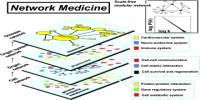The effectiveness of particular pharmacological therapies for patients with rheumatoid arthritis (RA) can be strongly impacted by the molecular profiling of the diseased joint tissue, according to recent study from Queen Mary University of London that was published in Nature Medicine.
The researchers also discovered particular genes linked to refractory disease a condition that is resistant to the majority of treatments now available which may hold the key to creating new, effective medications to treat these patients.
Even though there has been substantial advancement in the treatment of arthritis over the past few decades, a sizeable portion of individuals (about 40%) do not react to particular drug regimens, and 5-20% of those who have the illness are resistant to all currently available kinds of medicine.
In a biopsy-based clinical trial, the researchers examined the reactions of 164 arthritis patients to either rituximab or tocilizumab, two medications frequently used to treat RA. Rheumatoid arthritis treatments can lessen joint inflammation, ease pain, stop or slow down joint destruction, lessen disability, and allow you to remain as active as possible.
Rheumatoid arthritis has no known cure, but with early diagnosis, treatment, and support (including medication, dietary changes, supportive therapies, and surgery), the likelihood of joint destruction and the severity of the condition can be reduced.
According to the original trial’s findings, which were published in The Lancet in 2021, just 12% of patients with a weak synovial B-cell molecular signature responded to rituximab, a drug that targets B cells (rituximab), while 50% of patients responded to a different drug (tocilizumab). The two medications demonstrated comparable efficacy in patients who had high amounts of this genetic signature.
As part of the first-of-its-kind study, funded by the Efficacy and Mechanism Evaluation (EME) Programme, an MRC and NIHR partnership, the Queen Mary team also looked at the cases where patients did not respond to treatment via any of the drugs and found that there were 1,277 genes that were unique to them specifically.
Incorporating molecular information prior to prescribing arthritis treatments to patients could forever change the way we treat the condition. Patients would benefit from a personalised approach that has a far greater chance of success, rather than the trial-and-error drug prescription that is currently the norm.
Professor Costantino Pitzalis
On the basis of this, the researchers developed computer algorithms that might predict drug response in specific patients by using a data analysis technique called machine learning models.
When compared to a model that solely employed tissue pathology or clinical characteristics, machine learning algorithms that integrated gene profiling from biopsies performed noticeably better at predicting which medication would be most effective.
The findings makes a compelling case for gene analysis of biopsies taken from arthritic joints before pricey so-called biologic targeted medicines are recommended. This could prevent any unintended side-effects, joint injury, and worse results, which are frequent among patients. It could also save the NHS and society a significant amount of time and money.
Such testing could inform doctors about which patients might not respond to any of the available medications, which would highlight the necessity for creating substitute treatments.
Professor Costantino Pitzalis, Versus Arthritis Professor of Rheumatology at Queen Mary University of London, said:
“Incorporating molecular information prior to prescribing arthritis treatments to patients could forever change the way we treat the condition. Patients would benefit from a personalised approach that has a far greater chance of success, rather than the trial-and-error drug prescription that is currently the norm.”
“These results are incredibly exciting in demonstrating the potential at our fingertips, however, the field is still in its infancy and additional confirmatory studies will be required to fully realise the promise of precision medicine in RA.”
“The results are also important in finding solutions for those people who unfortunately don’t have a treatment that helps them presently. Knowing which specific molecular profiles impact this, and which pathways continue to drive disease activity in these patients, can help in developing new drugs to bring better results and much-needed relief from pain and suffering.”
To convert these discoveries into ordinary clinical care, it will be required to include these signatures in next diagnostic tests.
















